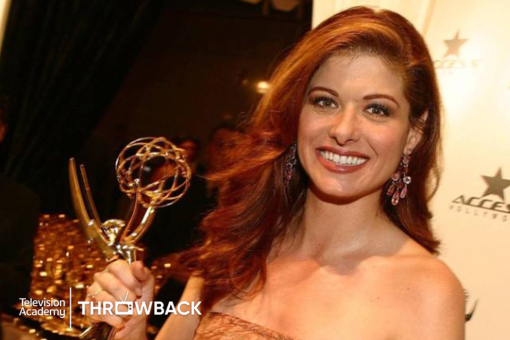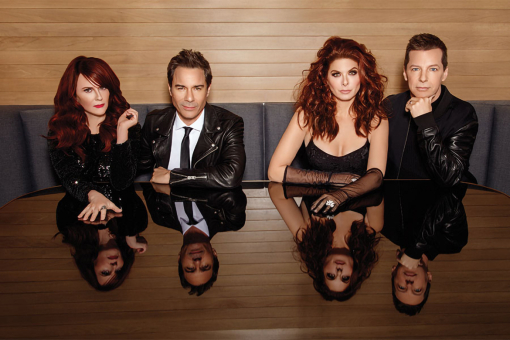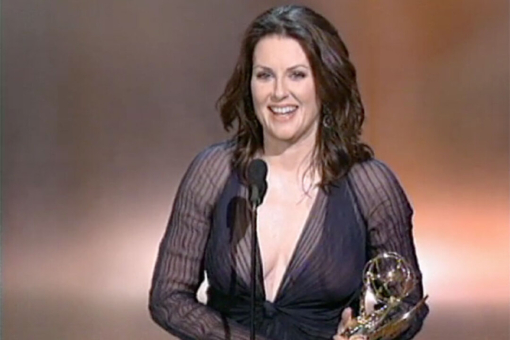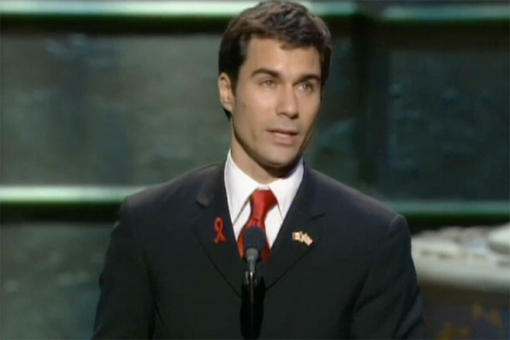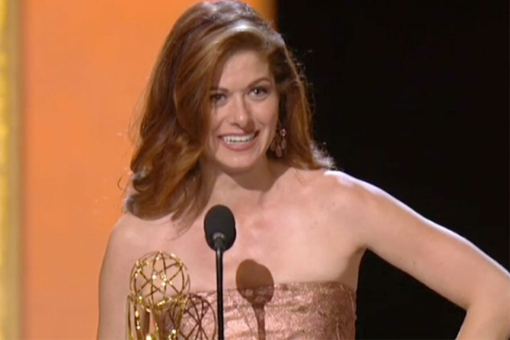Last September 26, on the morning of the first debate between Hillary Clinton and Donald Trump, the stars of NBC’s 1998–2006 hit comedy Will & Grace tweeted a group photo with the caption, “We’re baaaaaaack! ”
Indeed they were. Later in the day, a pro-Clinton video featuring the foursome in character appeared online. After 10 years, there were Eric McCormack’s gay lawyer Will Truman, Debra Messing’s interior designer Grace Adler, Megan Mullally’s rich socialite Karen Walker and Sean Hayes’s narcissistic Jack McFarland.
With the show’s snappy zingers and stars’ chemical charisma intact, the mini-episode racked up millions of views. That was enough for NBC Entertainment chairman Robert Greenblatt to approach creator–executive producers David Kohan and Max Mutchnick about a revival.
Almost a year to the day later, on September 28, Will & Grace begins airing 12 new episodes on NBC, on its customary Thursday nights, and it has already been renewed for a second season.
It may have had the snazziest rebirth, but Will & Grace is hardly alone. Also on the fall schedule is a reboot of Dynasty, this time on The CW. ABC will bring back Roseanne for eight episodes midseason, HBO’s Curb Your Enthusiasm returns in October after a six-year absence and in November CBS revives S.W.A.T., which aired on ABC in the ‘70s.
Fox’s 2016 revamp of The X-Files returns next year. Showtime’s Twin Peaks wrapped up an 18- episode season in early September. Netflix is streaming several reboots, among them Fuller House, a continuation of ABC’s Full House; One Day at a Time; and Gilmore Girls: A Year in the Life.
Why so many remakes?
“The main allure is name recognition,” says long- time television critic Brian Lowry, now a senior writer at CNNMoney Editorial covering media. “It’s so challenging to stand out from the crowd — anything that cuts through the clutter is an asset from a marketing standpoint.”
But “there’s no one-size-fits-all formula for a good reboot,” he cautions, advising “respect for the source without being shackled by it.”
The creators of Will & Grace had had no intention of reviving the series. “We’d all moved on,” Mutchnick says of the original, which won 16 Emmy Awards.
Then came Greenblatt’s call. “We went to NBC and Bob said, ‘How would you feel about doing the show again?’ We said, ‘Yes, if you can get all the actors.’ We give him all the credit for making the show happen again.”
Greenblatt is leery of reboots in general, but “If you have the original creators and stars,” he says, “and there’s a reason to do the show again — as opposed to just doing more of a hit — then I think they can work. The essence of [Will & Grace] is these four characters commenting on the world in terms of pop culture, politics and the zeitgeist of society. We kept saying, ‘If this show existed today, how would these characters respond to (fill in the blank)?’”
To that end, the writers’ room consists of former staff and newcomers. Says Kohan: “We needed younger people who were very much on top of things, in terms of a cultural touchstone.”
James Burrows, who directed every episode of the original, is back. And for the cast, there was never a question that it would be all (four) or none.
But there have been some changes: the show will address the death of Grace’s mother, played by the late Debbie Reynolds. And, Kohan reflects, “You find that the things you write about are things that concern you in the moment. The things you deal with at 35 or 40 are different than those at 50 or more. We’re focusing on gratitude and hopefully a little more wisdom, for ourselves and for the characters.”
Even for self-centered Jack?
Kohan pauses. “Well, maybe not for Jack.”
This article originally appeared in emy magazine, Issue No. 8, 2017


